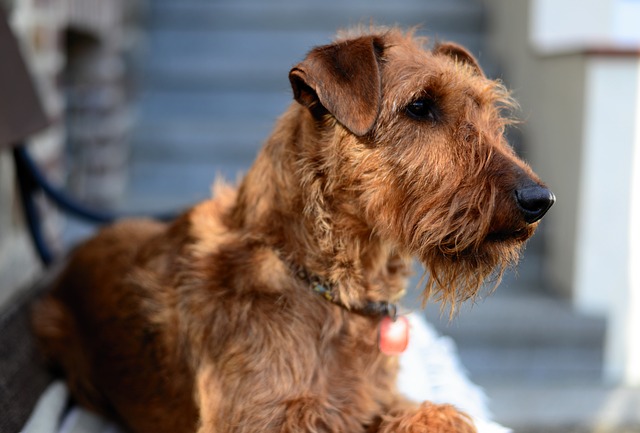
Dog Breed Guide: Irish Terrier
Irish Terriers are one of the oldest breeds of terriers, so it’s only fitting that they are also the living embodiment of the breed class. If you’ve ever heard that terriers are supposed to be scrappy, quick-witted, and basically fearless, then the Irish Terrier certainly won’t disappoint.
This is one of the larger terrier breeds, and while it’s full of spunk and curiosity, it also tends to be difficult to integrate with other pets, is not particularly stranger-friendly, and is somewhat harder to train. Don’t let that discourage you, though, because they’ve also got relatively low exercise needs, and they tend to be almost polite when inside the house. Perfect for families with smaller homes where bouncy pets might not work!
History of the Irish Terrier
The Irish Terrier is such an old breed that it’s exact origins aren’t exactly known.
It’s believed that they may be descended from older Irish breeds like the Black and Tan Terrier, although there’s some speculation that its size (which is on the large side for terriers) hints at some Irish Wolfhound ancestry!
Like most terriers, their first “job” was as a vermin hunter, and like their cousins, they were exceptionally good at the job!
The first Irish Terrier made it onto the show circuit in 1875, and the Irish Terrier Club of England was one of the first to ban ear cropping just a few years later in 1889.
By the late 1920s, Irish Terriers had not only made it to America, they were ranked 13th on the most popular breeds list! That ranking may have slipped somewhat since then, but they’re still consistently in the top 100 around the world, so they’re still a great choice for families!
General Physical Characteristics of Irish Terriers
Irish Terriers used to be seen in a range of colors, but these days, they range from red to wheaten and red gold, but never outside of that spectrum of shades.
They have wiry coats that need a fairly frequent brush to avoid knots, and some clipping and scissoring for style.
The Irish Terrier is one of the largest terriers, tipping the scales between 25 and 27 lbs. and measuring around 18 inches, but they’re surprisingly dainty rather than ungainly, so even though they’re bigger, they’re suitable for smaller homes too.
Ears are small, pointed, and folded but carried high and alert, and tails are usually docked fairly long by breeders.
Temperament and Character of Irish Terriers
Irish Terriers are great with their family and with pets that they have grown up with, but tend to be a little more aggressive with strangers (humans and canines).
With their history as ratters and vermin catchers, they’re not great with any other small animals.
While they are adventurous and brave, they’re not excessively energetic, so some outdoor play or a daily walk is all they need to keep mentally alert and physically fit.
These are fairly intense dogs in appearance and in character, but if you like dogs with spunk and personality, they may well be the one for you.
Lifespan of the Irish Terrier
Irish Terriers live around 13 to 14 years on average.
Common Health and Personality Issues in Irish Terriers
Irish Terriers, like many of the class, are hardy dogs that don’t really have any well-documented major health concerns. Some of the issues that do turn up from time to time in the breed include:
- Urinary stones are a relatively common occurrence in the breed.
- Irish Terriers may be more likely to experience hypothyroidism or underactive thyroid glands.
- Cataracts are another possible issue that this breed may face more often than others.
- Irish Terriers definitely need to be socialized well and often to take the edge off their somewhat aggressive temperament.
If ever there was a dog breed that polarized people, the Irish Terrier may well be it. Those who love them really adore them, while those who can’t deal with their stronger personalities and potential aggression issues may find that they can’t cope.
Try to spend some time with an Irish Terrier before you decide to bring one home to test the waters and see if your personalities work together. Remember. Dogs are forever.
